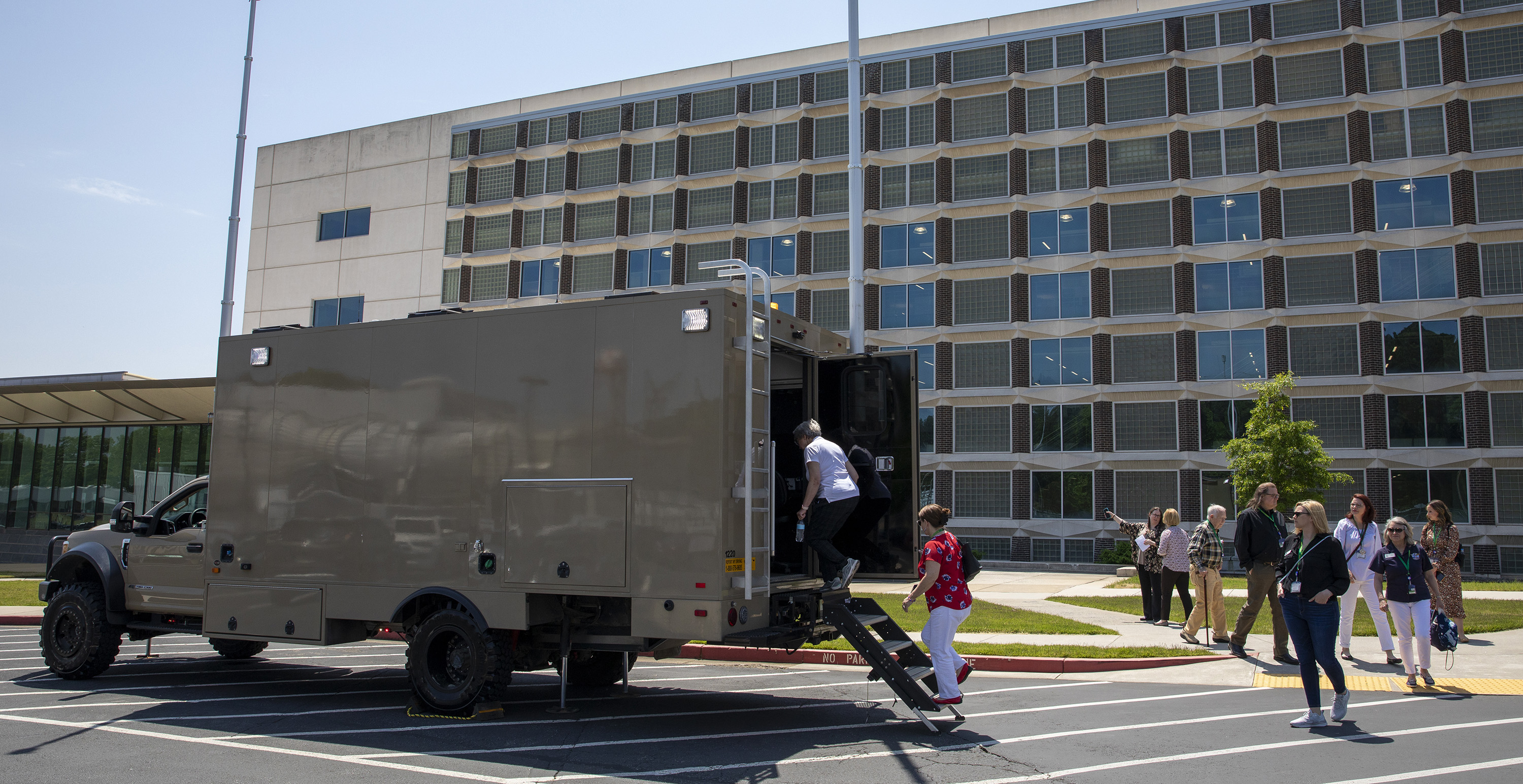
One of Cobb County’s best-kept secrets was recently unveiled in a big way for a group of county leaders with interests in military matters.
The issue was the Georgia Tech Research Institute’s (GTRI) world-class Cobb County, Georgia facilities and the approximately 850 researchers and staff working on national security research in a complex of buildings near Dobbins Air Reserve Base and the Lockheed-Martin Corporation – a facility that has been designing and building military aircraft since World War II.
While GTRI’s role in supporting the U.S. Department of Defense (DoD) isn’t officially a secret, the diversity and impact of the activity isn’t so well known in the county. To help address that, GTRI held a four-hour site visit for the Honorary Commanders Alumni Association (HCAA), an organization affiliated with the Cobb County Chamber of Commerce.
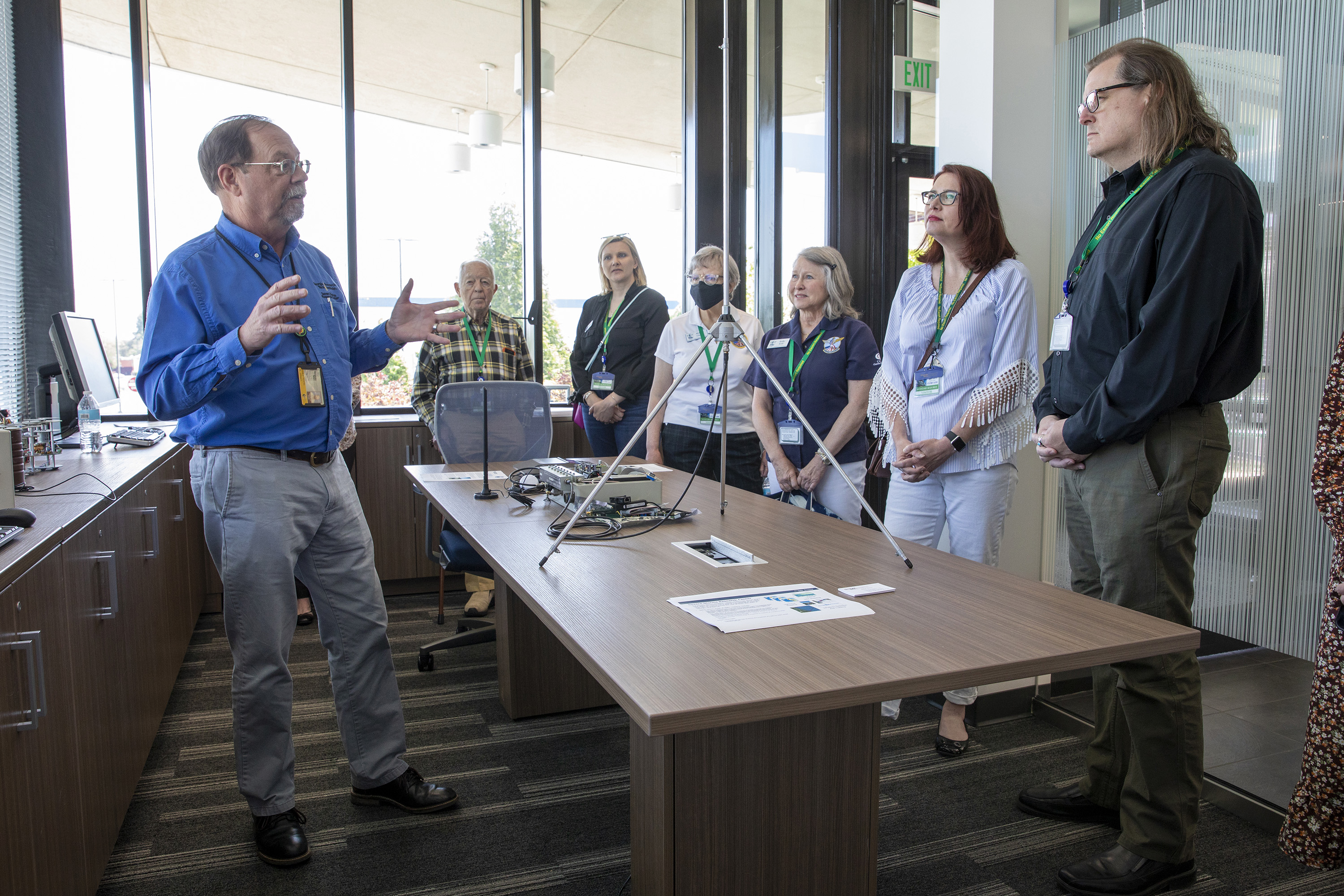
“We were all impressed at everything GTRI has in Cobb County working for our national defense and for civilian purposes,” said Joe Gaskin, co-chair of the HCAA – a group of military and civilian alumni of the Honorary Commanders Association, which gives Cobb leaders an opportunity to learn more about local military activities and their impact on the economy. “GTRI is helping boost Cobb County’s importance to national security.”
More than a dozen members of the HCAA attended the April 29 briefing. They saw work on building small unmanned aerial systems, research aimed at providing earlier warning of severe storms, a wind tunnel used to evaluate new aircraft designs, a phased-array radar that will be used to train operators, anechoic chambers used to develop acoustic devices, and the GTRI Research Electronic Warfare Truck (GREWT) – a Ford F-550 that supports field testing of aircraft defensive systems.

“Cobb County is becoming a center for national security work,” said James Hudgens, GTRI’s director and Georgia Tech senior vice president for research, who thanked the HCAA attendees for their interest in national security. GTRI’s volume of defense research has been growing rapidly and is expected to hit $850 million in 2022. Much of GTRI’s expansion will come to Cobb County, where GTRI already has nearly a million square feet of research facilities, Hudgens told the group.
GTRI has long been known for its electronic warfare research, and Hudgens noted that GTRI is the nation’s second-largest University Affiliated Research Center (UARC) – designated as such because of its unique capabilities that are considered essential to the DoD. Throughout the United States, GTRI operates 22 field offices that help DoD agencies address critical operational issues.
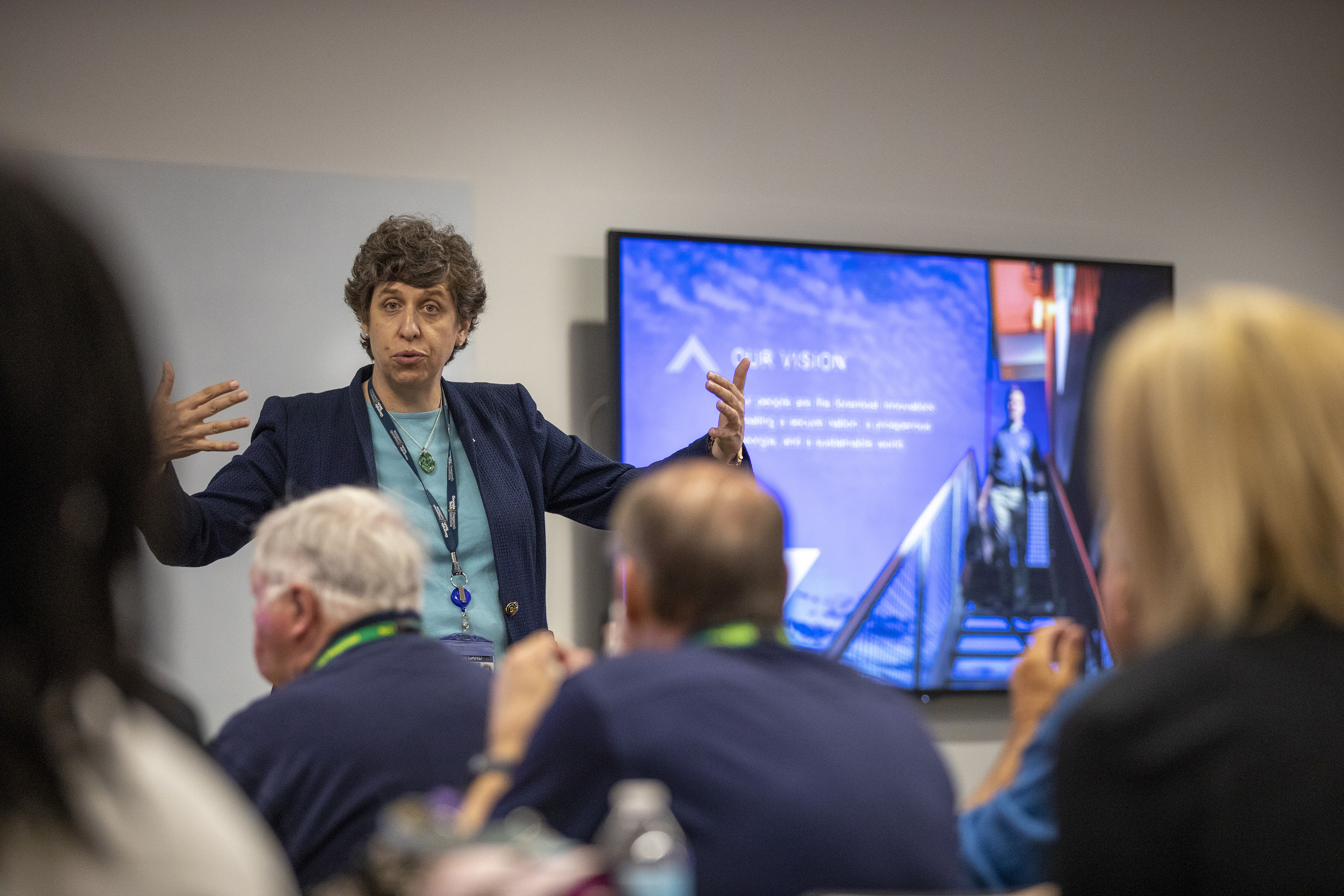
More than 90% of GTRI funding goes to national security research, though the innovation created by these federal dollars has a significant impact on non-defense areas through a “virtuous cycle” of transitions through Georgia Tech’s statewide networks.
“Federally-sponsored research translates into innovation for the state of Georgia,” said Anne Clark, chief scientist for the Air National Guard Program Division (ANGPD) in GTRI’s Electronic Systems Laboratory (ELSYS). Combined with innovation from Georgia Tech’s academic research programs, the virtuous cycle creates unique capabilities to transition new technology through Georgia Tech’s statewide network, where it creates significant impacts that go beyond the DoD, she told the group.
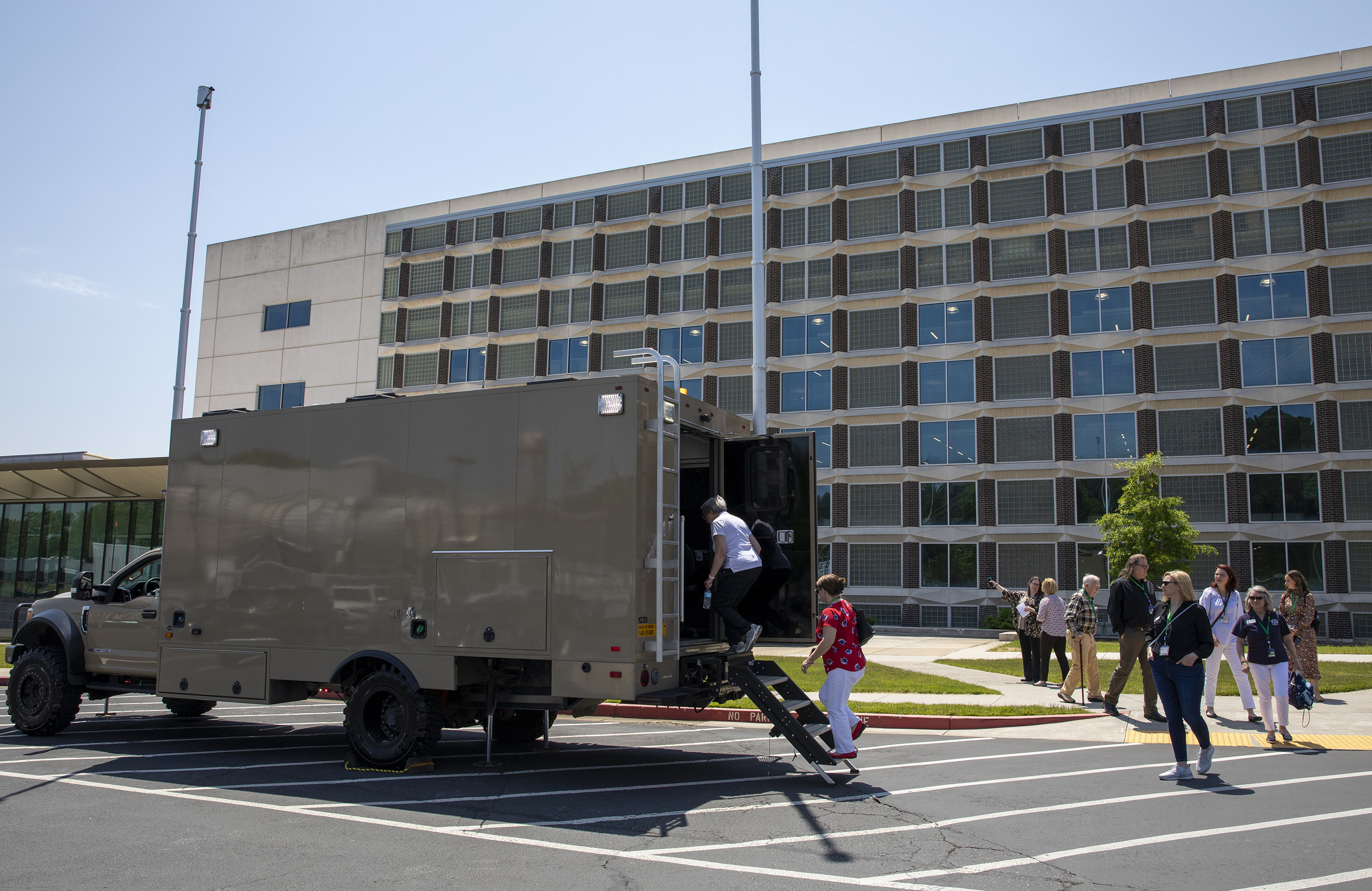
For the state of Georgia, for example, GTRI researchers are supporting a four-year project known as the Medicaid Enterprise System Transformation that is re-architecting the system that supports health care services to approximately three million Georgia citizens. Also in the health care arena, GTRI is supporting the development of the Georgia All-Payer Claims Database (GAPCD), a project aimed at providing price transparency and information about health care quality to help Georgia citizens make informed medical decisions.
GTRI’s Agricultural Technology Research Program (ATRP) works in collaboration with university and industry partners, especially within Georgia's poultry industry – which has a $28 billion annual impact on the Georgia economy – on projects involving robotics, advanced sensors, environmental treatment, and worker and food safety technologies. And as attendees for the HCAA site visit saw, research into radar, acoustic and seismic sensors and models at the Severe Storms Research Center (SSRC) are helping develop improved technologies for predicting severe weather.
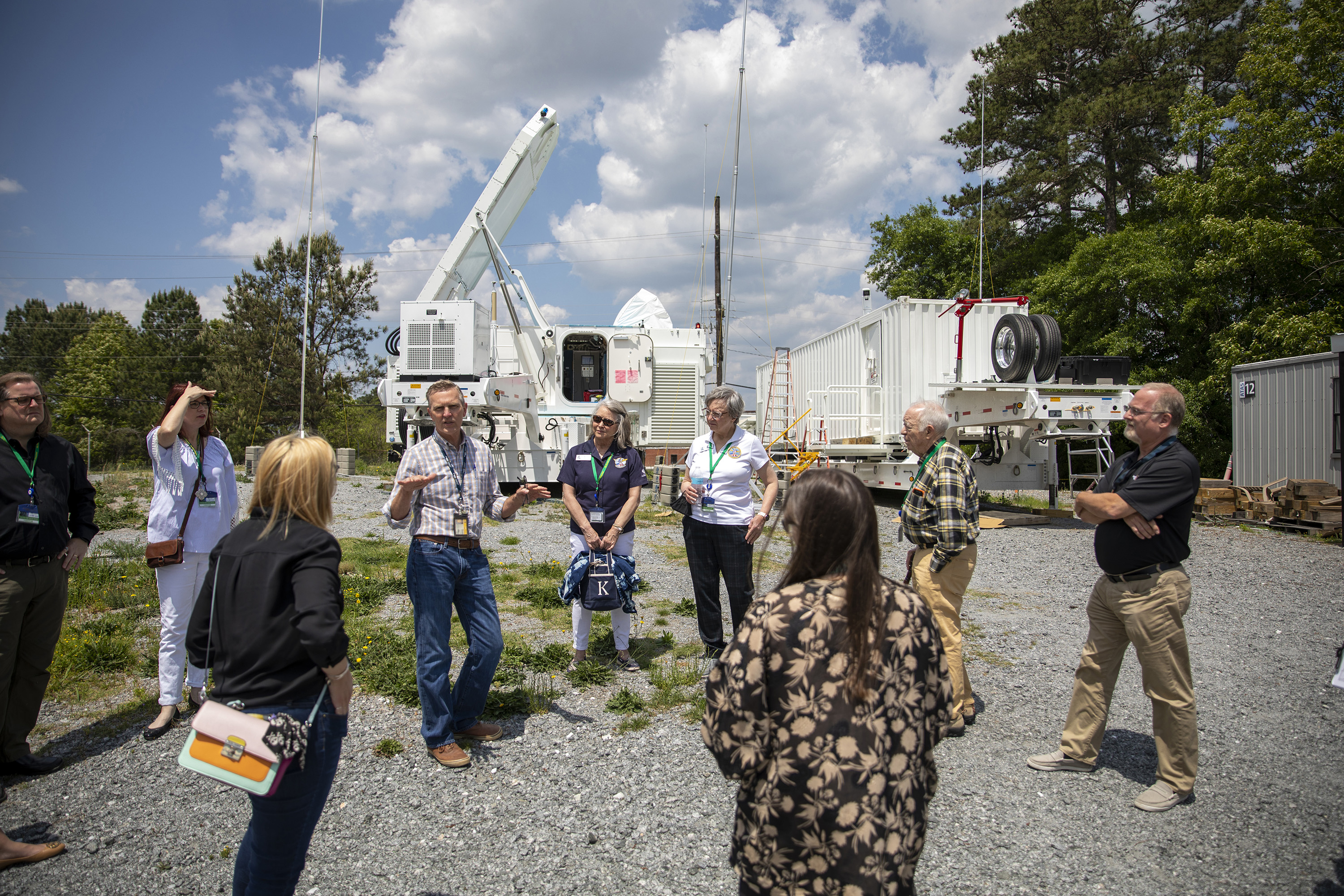
Another major benefit to the state is educating young engineers who become leaders in companies and organizations across the state, Clark noted. “Georgia Tech is really the technology school for the Southeast United States,” she said. Collaborations with Emory University are expanding research in biomedicine and the biosciences, Clark added.
GTRI is the applied research division of Georgia Tech. Founded in 1934 as the Engineering Experiment Station, GTRI has grown to more than 2,800 employees supporting eight laboratories. In all, GTRI accounts for $1.7 billion of Georgia Tech’s overall $3.3 billion impact to the state, Clark noted. Of the 4,390 faculty at Georgia Tech, GTRI is responsible for 1,713 – most of them full-time researchers.
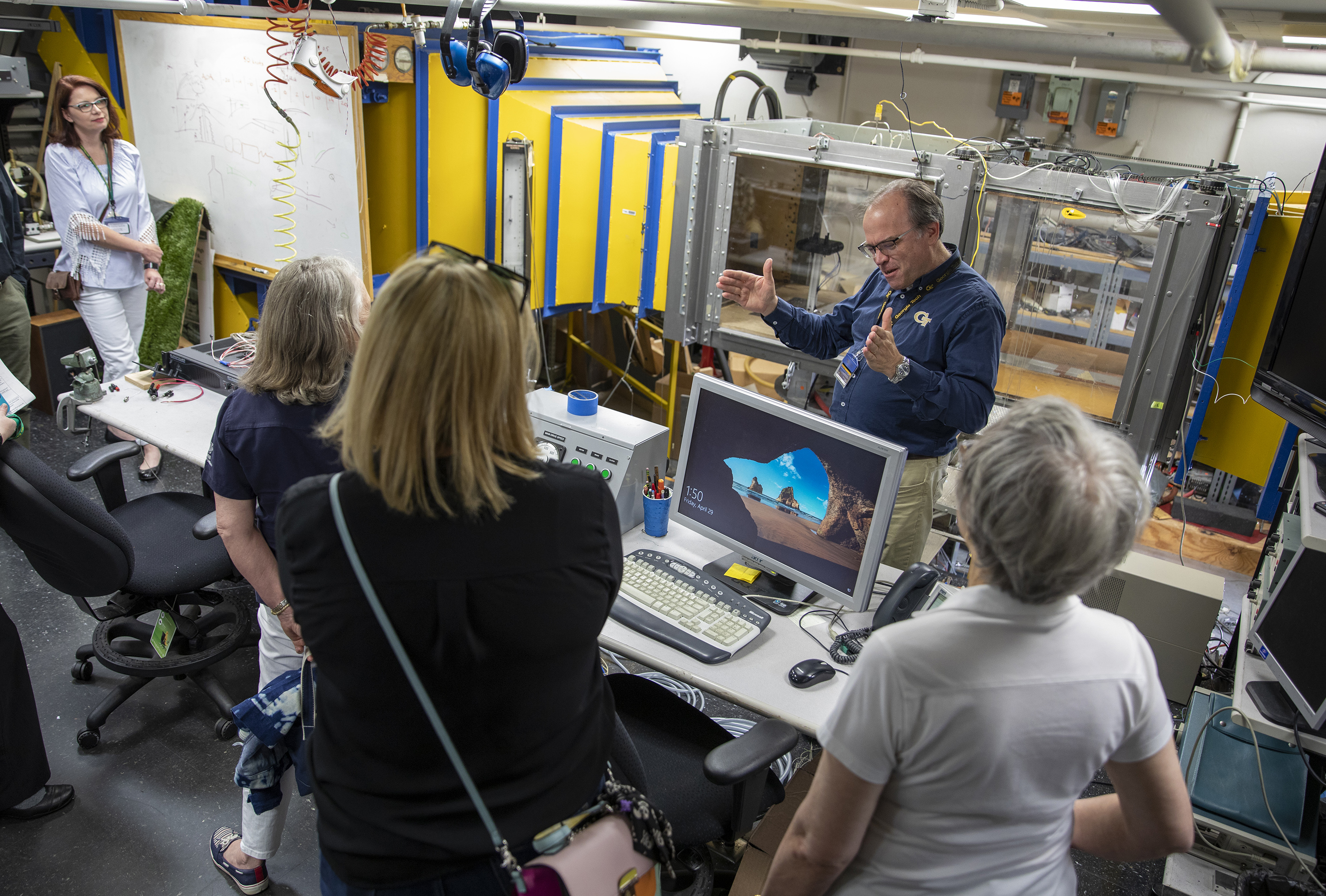
With nearly a million square feet of space in 11 buildings at its Cobb County facility, GTRI also has approximately 850,000 square feet of space in 14 buildings on Georgia Tech’s main campus in midtown Atlanta.
The Honorary Commanders Association is a cooperative effort of the Cobb Chamber, Dobbins Air Reserve Base, General Lucius D. Clay National Guard Center, the Navy, and the Marine Corps. The organization annually selects community and business leaders and pairs them with military commanders in a yearlong program, giving those leaders the opportunity to learn more about local military activities, their impact on our economy, and various aspects of the national defense system. Members of the HCAA, who are graduates of the primary organization, support the Honorary Commanders program, as well as foster and maintain relationships with military and defense contacts.
Writer: John Toon (John.Toon@gtri.gatech.edu)
GTRI Communications
Georgia Tech Research Institute
Atlanta, Georgia USA
The Georgia Tech Research Institute (GTRI) is the nonprofit, applied research division of the Georgia Institute of Technology (Georgia Tech). Founded in 1934 as the Engineering Experiment Station, GTRI has grown to more than 2,800 employees, supporting eight laboratories in over 20 locations around the country and performing more than $700 million of problem-solving research annually for government and industry. GTRI's renowned researchers combine science, engineering, economics, policy, and technical expertise to solve complex problems for the U.S. federal government, state, and industry.
Learn more at www.gtri.gatech.edu and follow us on LinkedIn, Twitter, Facebook, and Instagram.



